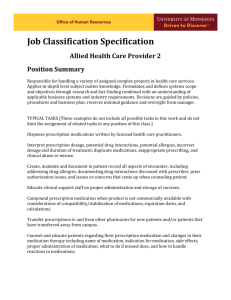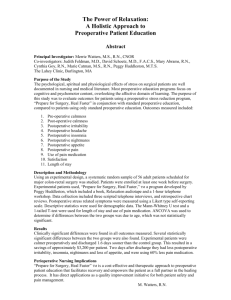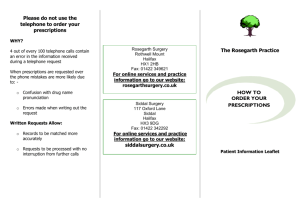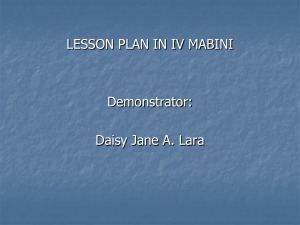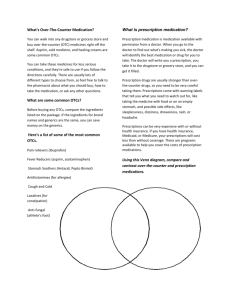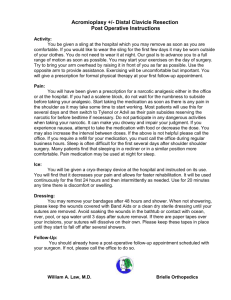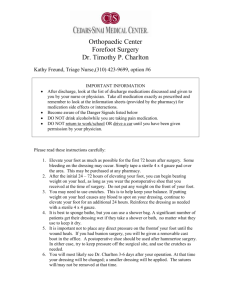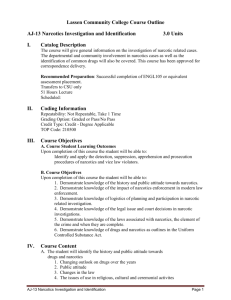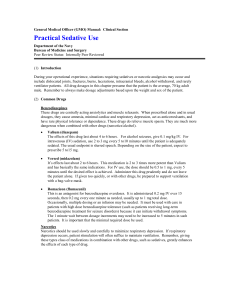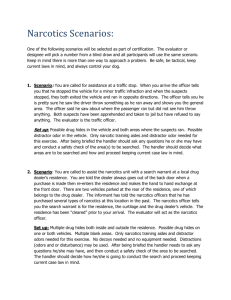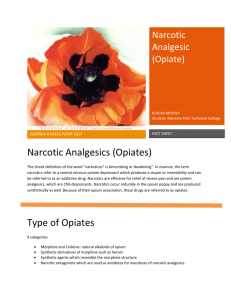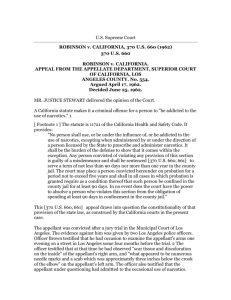Prescription Policy - Upper Hand Orthopedics
advertisement
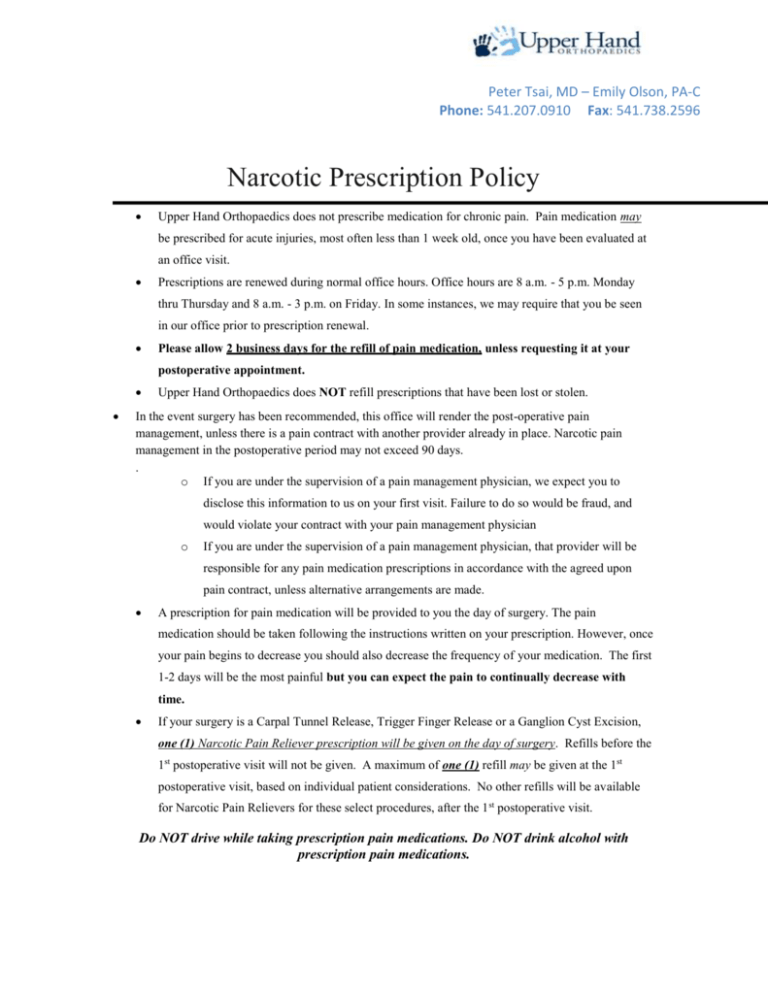
Peter Tsai, MD – Emily Olson, PA-C Phone: 541.207.0910 Fax: 541.738.2596 Narcotic Prescription Policy Upper Hand Orthopaedics does not prescribe medication for chronic pain. Pain medication may be prescribed for acute injuries, most often less than 1 week old, once you have been evaluated at an office visit. Prescriptions are renewed during normal office hours. Office hours are 8 a.m. - 5 p.m. Monday thru Thursday and 8 a.m. - 3 p.m. on Friday. In some instances, we may require that you be seen in our office prior to prescription renewal. Please allow 2 business days for the refill of pain medication, unless requesting it at your postoperative appointment. Upper Hand Orthopaedics does NOT refill prescriptions that have been lost or stolen. In the event surgery has been recommended, this office will render the post-operative pain management, unless there is a pain contract with another provider already in place. Narcotic pain management in the postoperative period may not exceed 90 days. . o If you are under the supervision of a pain management physician, we expect you to disclose this information to us on your first visit. Failure to do so would be fraud, and would violate your contract with your pain management physician o If you are under the supervision of a pain management physician, that provider will be responsible for any pain medication prescriptions in accordance with the agreed upon pain contract, unless alternative arrangements are made. A prescription for pain medication will be provided to you the day of surgery. The pain medication should be taken following the instructions written on your prescription. However, once your pain begins to decrease you should also decrease the frequency of your medication. The first 1-2 days will be the most painful but you can expect the pain to continually decrease with time. If your surgery is a Carpal Tunnel Release, Trigger Finger Release or a Ganglion Cyst Excision, one (1) Narcotic Pain Reliever prescription will be given on the day of surgery. Refills before the 1st postoperative visit will not be given. A maximum of one (1) refill may be given at the 1st postoperative visit, based on individual patient considerations. No other refills will be available for Narcotic Pain Relievers for these select procedures, after the 1 st postoperative visit. Do NOT drive while taking prescription pain medications. Do NOT drink alcohol with prescription pain medications. Peter Tsai, MD -- Emily Olson, PA-C Phone: 541.207.0910 Fax: 541.738.2596 As part of keeping our patients informed, we want to make you aware of the reasons why we limit the use of narcotics. Severe postoperative/post injury pain that would require narcotics will usually reduce significantly by 2-3 days after surgery or injury and is gone by 10-14 days. Postoperative needs for narcotics longer than this period may signal complications that need more direct or specific treatment instead of covering up the problem. Typically, however, it is known that a longer need for narcotics more often than not means that you are up doing too much and “chasing” it with narcotics. Although you may desire to be active, it is possible to be “too active.” You need to listen to your body and respond to it. Overall, you will recover more quickly reducing your activities so that your pain is controllable without the need for narcotics. After all, your goal is to make the best recovery from your surgery or injury you can. After 3-7 days your brain wants to and is supposed to kick in and manage the pain naturally. This is the best way to manage medium and long-term soreness and milder pain. Narcotics are known to block this normal process. Narcotics are proven to be habit forming. Dependency on pain medication can start in as little as 2 weeks after beginning their use. Our goal is to prevent this from happening.
